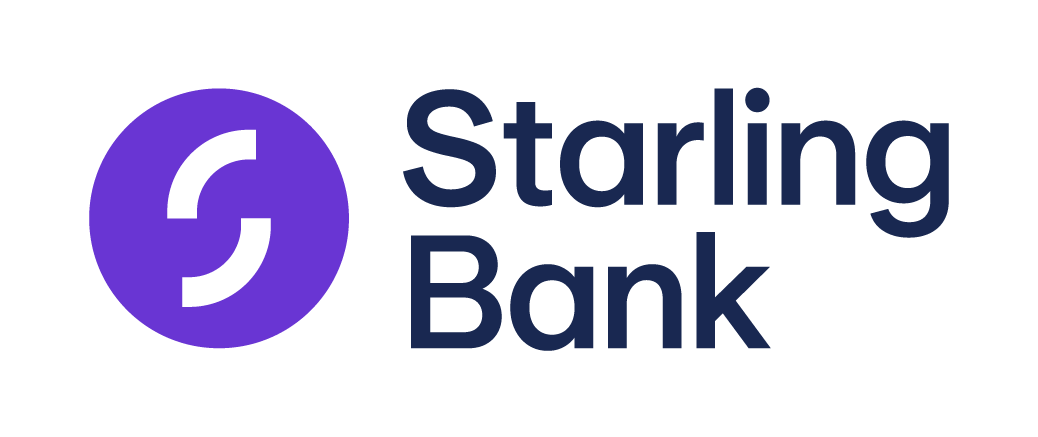Today, more and more challenger banks are emerging. These new digital challenger banks have revolutionized the way people manage their finances.
By offering convenient features and services through mobile apps, Starling and Revolut have boosted online banking.
Whether you’re looking for seamless international transfers, budgeting tools or cryptocurrency trading, in this blog post, you’ll find out how Starling Bank and Revolut are different and which one is worth choosing.
| Features | Revolut | Starling Bank |
| Account Types | Personal, Business, and 18> accounts | Personal, Joint, Euro, Starling Kite, Teen, and Business accounts |
| Mobile App | The intuitive and feature-rich app | Sleek and user-friendly app |
| Spending Insights | Provides detailed breakdowns of spending | Offers spending insights by category |
| International Transfers | 0.30-2.00% fee for fast international transfers | 0.4% fee for all international transfers |
| Free ATM Withdrawals | Up to 5 ATM Withdrawals or €200 per rolling month | Unlimited free ATM withdrawals |
Starling vs Revolut: an overview
Starling Bank and Revolut are financial services providers changing and evolving the banking market. They are challenging traditional banking with its unique features.

What is Starling Bank?
First of all, Starling is a bank. Anne Boden founded Starling in 2014 to provide fully digital banking services and to move away from physical branches.
Moreover, it was one of the first digital banks to sign up for the CASS. As a result, Starling now offers its customers a convenient desktop and mobile banking experience. The bank quickly became popular among millennials.
Starling has established itself in the banking sector by opening over 3 million bank accounts and securing over £500 million in funding. It has also been awarded the title of Britain’s Best Bank at the British Bank Awards for four consecutive years as of 2018.

What is Revolut?
Nikolay Storonsky and Vlad Yatsenko founded Revolut in 2015. Their initial idea was to create a travel card with the main purpose of providing cost-effective foreign exchange rates.
However, eventually, Revolut started to offer more financial products and services, becoming a challenger European bank.
Revolut expanded into the European market and in 2018 obtained a UK banking license. It provides open banking services to users in the European Economic Area (EEA). As of 2021, Revolut has more than 15 million users.
The financial services provider offers muti-currency bank accounts, debit cards, cryptocurrency trading and stock trading.
Similarities
Starling Bank and Revolut share several common features. These financial service providers operate mainly through mobile banking apps and websites. They offer similar services:
- round-ups
- payments
- direct debits
- convenient savings options
Both banks also issue physical cards to their customers. However, only Revolut charges a shipping fee.
Although neither banks have physical branches, Starling Bank allows customers to make cheque deposits. You can do it by scanning them via the app or the Post Office.

Basic differences
Starling Bank
Starling Bank is a registered UK bank. It falls under schemes such as the Financial Services Compensation Scheme (FSCS), which provides additional protection for customer deposits.
Starling Bank also has a multiple personal account tiers and offers unlimited free ATM withdrawals in the UK. Unlike Revolut, it provides overdrafts and loans.
However, Starlink Bank does not offer the possibility to buy shares or cryptocurrencies. Also, it charges a transaction fee for each bank transfer to any account in the Single Euro Payments Area (SEPA).
Revolut
On the contrary, Revolut operates according to its security methods. In addition to the standard card, Revolut also offers several paid account options. It sets cash withdrawal limits depending on the card tier.
Revolut provides the option to buy shares, gold bullion and cryptocurrencies through its current account.
Revolut also allows tax-free money transfers to any bank account in the Single Euro Payments Area (SEPA)
Starling vs. Revolut accounts
Starling accounts
In terms of account types, Starling offersfive personal accounts:
-
- Personal account for daily transactions
- Joint account for shared spending
- Euro account in the UK
- Teen account for 16 and 17 year olds
- Business account
You can open a bank account for free and get a credit or debit card. Also, you can get a Starling Kite – a debit card for children.
Revolut accounts
Revolut offers personal, joint, savings, Revolut Pro for freelancers, Revolut <18, ans business accounts.
Also, you can choose from four personal account plans:
- Basic account
- Plus account
- Premium account
- Metal account
- Ultra account
Each of these accounts has different additional privileges and limits for cash withdrawals. Unfortunately, you can’t create a joint account in Revolut yet. However, like Starling, it allows you to create a Euro account.
In addition, a free account can hold and exchange 28 currencies. It also allows free transfers to other Revolut accounts. Revolut also provides plastic and virtual cards for both business and personal accounts.
In addition, Revolut offers Premium accounts which cost £7.99 per month. By signing up for this account, the Mastercard debit card will have additional features like insurance, a longer repayment period for purchases made with the card and travel cancellation insurance.

Starling vs. Revolut business accounts
Starling Bank and Revolut offer business accounts providing convenient features without monthly fees. These easy-to-use business accounts make it simple to make international money transfers and local payments and withdraw money from ATMs in other countries.
Starling and Revolut provide excellent opportunities for UK-based businesses. These financial service providers offer business current accounts, business MasterCard cards and tools to track spending. You can also use mobile apps or banking to manage your business finances more efficiently.
Starling business bank account overview
Starling Bank provides business accounts that you can open for free and get your first credit or debit card.
One of the services offered by Starling Bank is a convenient sign-up through their current account switching service. This service is essential if you already have a business account with another bank.
Also, unlike Revolut, every Starling account offers overdrafts and loans. Services include additional financial schemes for businesses.
Those are government-backed initiatives such as the Coronavirus Business Interruption Loan Scheme (CBILS) and the Business Bounce Back Loan Scheme (BBLS).
Moreover, the Starling Bank Business Account integrates with popular accounting tools. If you feel the need, you can choose the Business Toolkit. It provides instant invoicing, automated expense management, VAT recording and submission, and tax calculation.
Revolut business account overview
The Revolut Business account offers a variety of benefits tailored to businesses and freelancers. With multi-currency accounts, users can effortlessly hold and manage funds in different currencies, free from hidden fees.
Additionally, the account allows for unlimited users, enabling seamless collaboration among colleagues and collaborators.
Expense management is simplified with the ability to set limits, categorize expenses, and automatically link receipts.
International payments
Starling bank
A free Starling Bank account has many advantages. It doesn’t charge transfer fees, regardless of location. Therefore, you can make international money transfers without worry.
Also, you can send money with SWIFT. However, this transaction will cost you £5.50.
Starling Bank account allows you to use your card abroad. The daily spending limit is £10,000.
You can use the card as you would for card payments in your country, and you get free foreign transactions and free foreign ATM withdrawals abroad.
Revolut
Fees for transactions differ according to the plan.
If you choose a Standard Revolut account plan, you cannot avoid international transaction fees. The app will calculate this fee instantly and display it to you before you proceed with the payment.
Local payments are free. Commodity exchange has a 1.99% (minimum fee £1) fee and is limited to £1,000 per month. Any extra exchange incurs a 1% fair usage fee.

Financial services compensation scheme protection
When it comes to Revolut, the free account does not provide FSCS protection for deposits.
However, Revolut keeps it in a separate account with a higher-rated bank. This account connects to third-party accounting tools.
On the other hand, Starling protects and insures cash deposits of account holders up to GBP 85 000 under the FSCS.
[note title="Note"]
All information provided is dated 17 April 2024 and may have been updated since. Please check each platform’s official website for the latest information.
[/note]
FAQ
Is Starling better than Revolut?
Deciding which bank is better depends very much on individual needs. Both financial service providers have their advantages and features that different users may like.
Starling Bank has a UK banking licence. The bank offers a full range of banking services such as loans and overdrafts. Although it is digital, Starling Bank provides a solid banking experience.
It offers features such as free ATM withdrawals, convenient cheque deposits and comprehensive customer service. In addition, Starling ensures the safety of customers’ deposits with its FSCS.
On the other hand, Revolut focuses on international services. It allows users to hold and exchange multiple currencies and make international money transfers.
Budgeting tools, rounding and cryptocurrency trading are also available on the Revolut platform. Thus, the Revolut app and its innovative features have captured the hearts of many travellers.
Finally, the question ‘Which is better: Revolut vs. Starling?’ leads to a personal needs assessment. If you value the experience of traditional banking, a full range of banking services and the protection of the FSCS, Starling Bank may be the right choice for you.
Conversely, if you prefer international services, multi-currency use and exchange, and advanced financial tools, then you should choose Revolut.
What are the disadvantages of Starling Bank?
One of Starling Bank’s key weaknesses is its lack of advanced features and services compared to some other digital banking platforms.
Also, some customers have reported occasional technical problems. They have also noted limitations in the availability of customer service.
However, these are individual cases, and each person’s experience may vary. Thus, these drawbacks should be considered together with the many advantages of the Bank.
Is there better than Revolut?
First of all, whether a banking service is better than Revolut or not depends on individual needs.
However, other digital financial platforms offer similar or even better features and services than Revolut.
One of them is swissmoney, which not only allows online payments or money transfers. swissmoney also lets you buy and sell cryptocurrencies.
Whether alternative platforms are more suitable is assessed based on factors such as account features, fees, customer service, or specific financial requirements.
It is worth comparing the different options, services, and fees before choosing which platform to use to find the most suitable one.
What is the difference between Starling Monzo and Revolut?
Starling, Monzo and Revolut are well-known digital financial service providers that differ from each other. Unlike Revolut, Starling and Monzo are fully licensed banks.
Starling Bank has mainly developed comprehensive banking services. On the other hand, Monzo excels in budgeting and spending insights. Revolut’s strength lies in its internationalised features and additional services such as cryptocurrency purchases.
Read more

